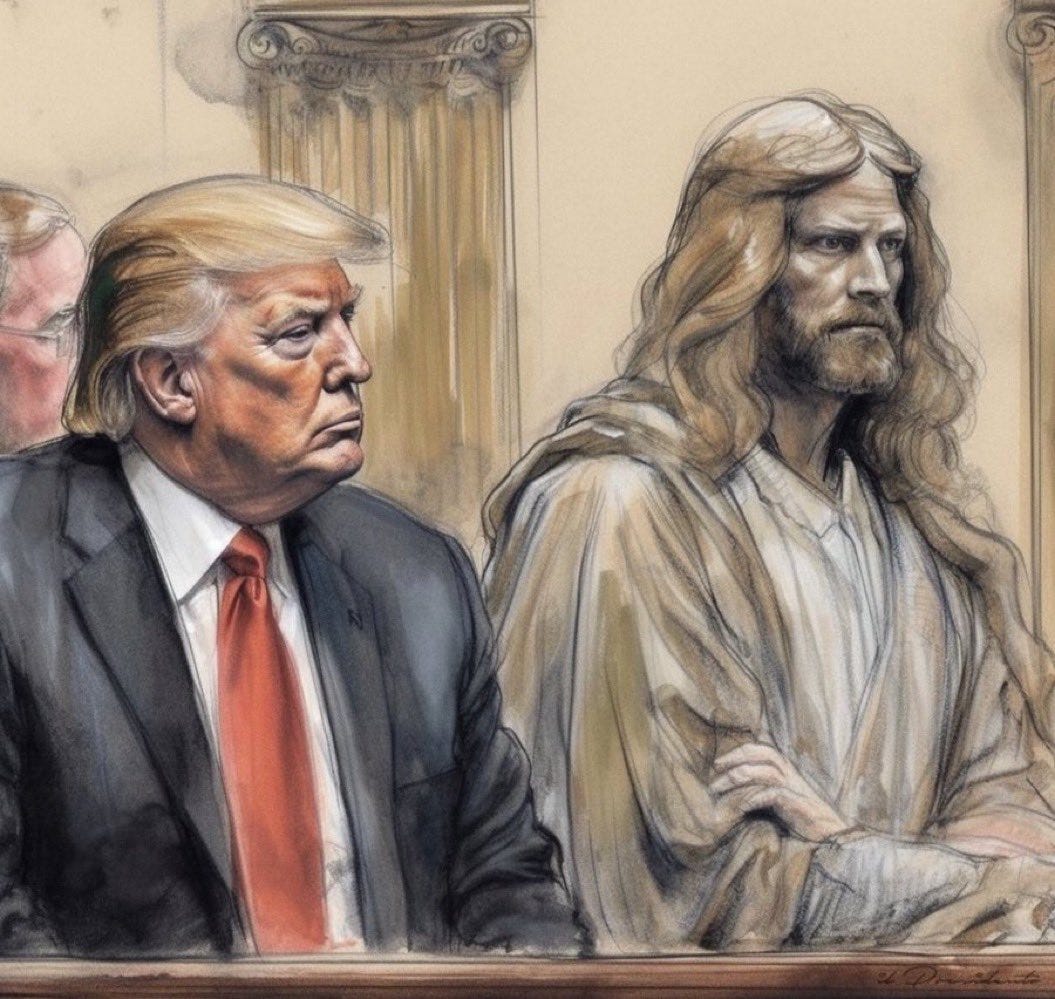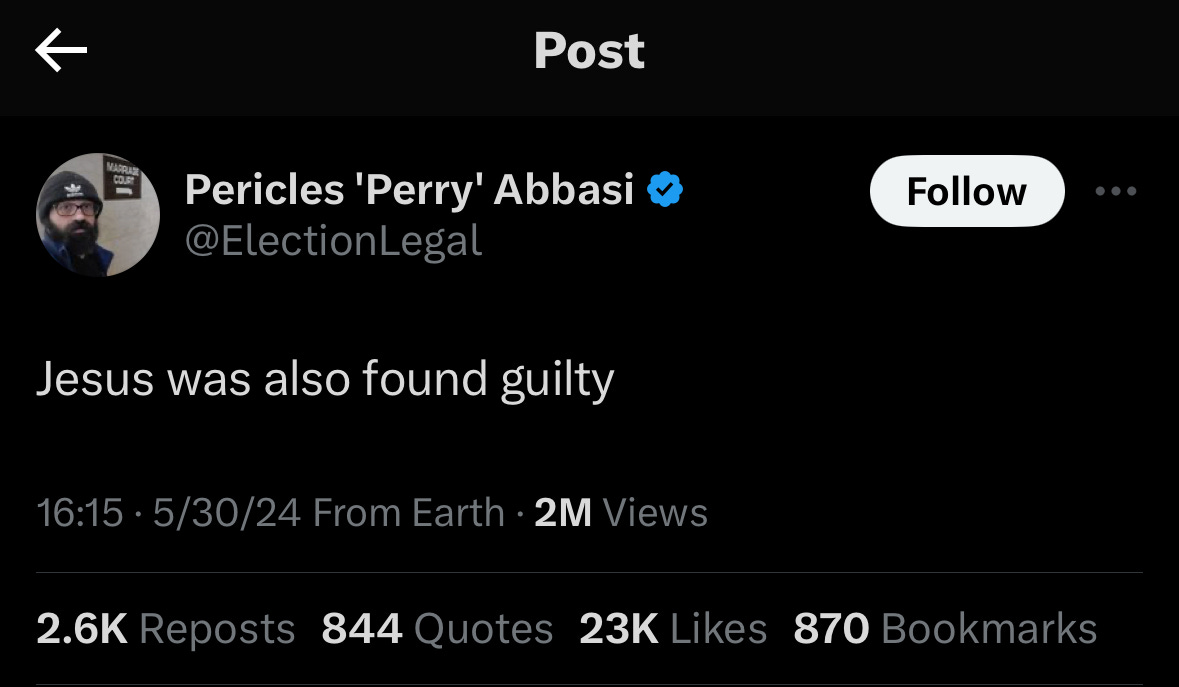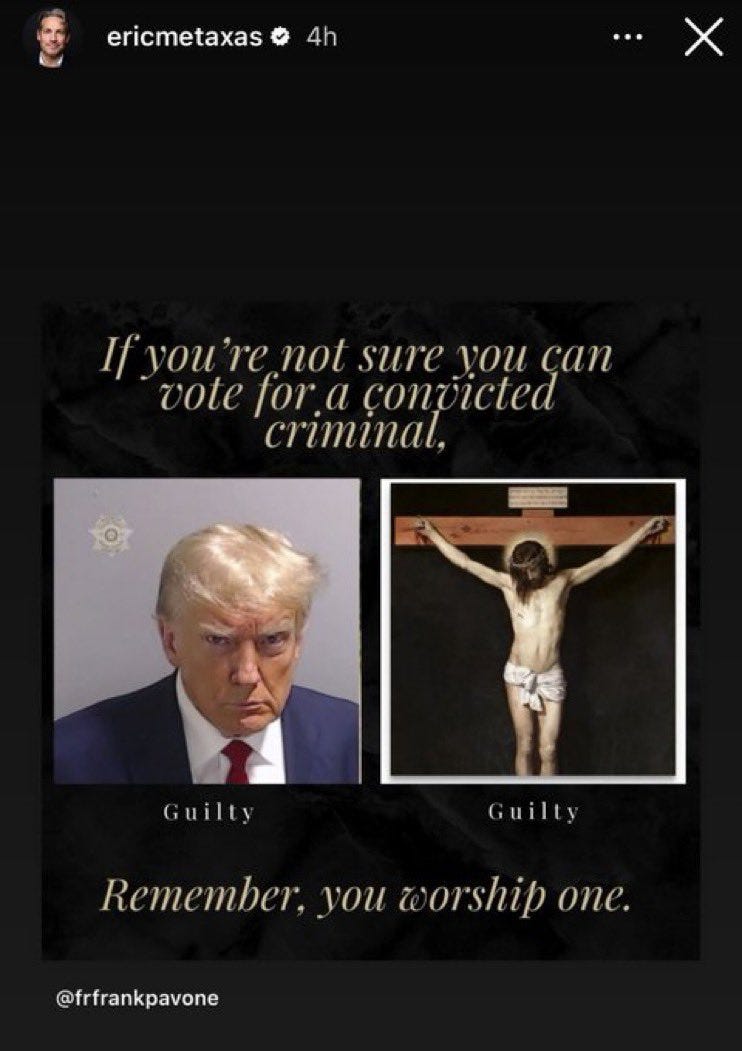do all christians worship the same god?
community, convictions, and the politics of recognition.

A question that often arises in evangelical spaces is whether Muslims and Christians worship the same God.
As America grows increasingly diverse—socially, culturally, religiously—questions like this are often how evangelicals will first attempt to reckon with difference. The point is not so much to claim a definitive answer, but rather to chart a path for how to engage:
The first response is clear-cut: If Muslims don’t worship the same God, then they exist outside the boundaries of salvation and we ought to evangelize to them.
The second response is more complicated. If Muslims do worship the same God as Christians, then one could argue that they still fundamentally misunderstand who this God is. This begs the question: if you misunderstand the object of your worship, can you rightly worship in the first place? If you and your neighbor both say “I love cats,” but then your neighbor points to a horse and says “I love this cat,” do you really both love cats? Or has a love of cats been misidentified and misunderstood? (Yet - what if everyone in your neighbor’s family looks at a horse and says “cat!” Is a horse then a “cat?” Ah, language! How fickle you are).
Christians would conclude that it doesn’t matter if they and Muslims claim to worship the same God because functionally they worship two very different things.
This all leads me to my point: I am increasingly convinced that this question and line of logic is one we should apply to MAGA, nationalist Christians.
For those who’ve followed TCL for a while now, this isn’t a surprise. I often argue that what we believe must be measured against what those beliefs lead us to do. Belief and action go hand in hand.
So, then, what do we do with Christians who are so deeply entrenched in the world of Donald Trump and MAGA-ism that they will move their moral and spiritual goalposts to accommodate a now-convicted felon? Even more, how do we make sense of Christians whose first response to this conviction is:
These are not the fringe beliefs of your aunt on Facebook. They are shared by prominent evangelical leaders like Al Mohler, who dedicated his latest opinion piece to furthering the belief that this was a sham trial and reaffirming his support for Trump:
“Say what you will about Donald Trump and his sex scandals, he doesn’t confuse male and female.”
Those who’ve followed TCL for a while will also be familiar with another concept: recognition.1
Pragmatically, shared Christian faith is often acknowledged by observing others “go on in the same way.” There is a recognition that we move in and through this world in a way that is understood as “Christian.” This happens when we see an athlete take a knee to pray after scoring, hear an actor say “I’d like to thank my Lord and savior,” or notice a stranger reading a Bible at a coffee shop. We recognize these actions and identify such people as “Christian.”
So what happens when Christians act in ways that are unrecognizable to one another? What happens when I see Christians like Metaxas claim that “Jesus was guilty too” and Mohler who excuses moral failure as long as his values around sexuality are upheld? These, to me, are not recognizable as Christianity. We can also look at this in reverse—how do I respond to Christians who say that my beliefs are unrecognizable to them and question if I still believe the Gospel? Can we both claim the banner of Christianity?
One final term will help us here: community. Last week I explained how we make meaning as communities. We also do this work of recognizing as a community. In many ways, these two tasks—recognition and meaning-making—go hand-in-hand. When we see others making sense of the world in the same way as ourselves, we recognize it as being Christian.
However, we exist at a moment where Christian communities are making meaning and acting in ways that are not just different from one another but directly opposed to one another—as unrecognizable to one another.
This is neither the low-hanging fruit of voting for different political candidates nor a clickbait argument that “Republicans aren’t Christians.” This isn’t about aligning with a political party or identifying as “conservative.” This is about those Christians who fuse their political ideology with Christianity in such a way that, for one to fail, both are destroyed—who hinge their belief in God’s power on Trump’s legal innocence and political success. This is about MAGA Christians whose first instinct is to liken Trump to a messianic figure, no matter his actions.
In total, we are left with a familiar dilemma: Do we all worship the same God? If we do, then one of us fundamentally misunderstands who this God is.
Reading:
James KA Smith, Who’s Afraid of Relativism: Community, Contingency, and Creaturehood
Melissa May Borja, Follow the New Way: American Refugee Resettlement Policy and Hmong Religious Change
Watching:
Pagglait (Netflix)
Brooklyn Nine-Nine (Netflix)
Listening:
Kevin W. Hector offers an extended argument for this in his brilliant book Theology Without Metaphysics: God, Language and the Spirit of Recognition.







I think and say in my substack "The GOD Thing" that even Christians do not worship the same God. I have students who ask me if I believe in God. I ask them to tell me what/who they think God is, and I'll tell them if I believe in that God. We'll not get very far as long as we are blind to this fact. A lot of "Christians" do not worship a God of love, grace, benevolence, and so forth. Thus, the Sermon on the Mount is ignored or spiritualized into meaninglessness, and they've never heard of the fruit of the Spirit. The prophetic witnesses are ignored or used to prove their fantasy that Israel had to be founded and the Temple rebuilt for Jesus to return.